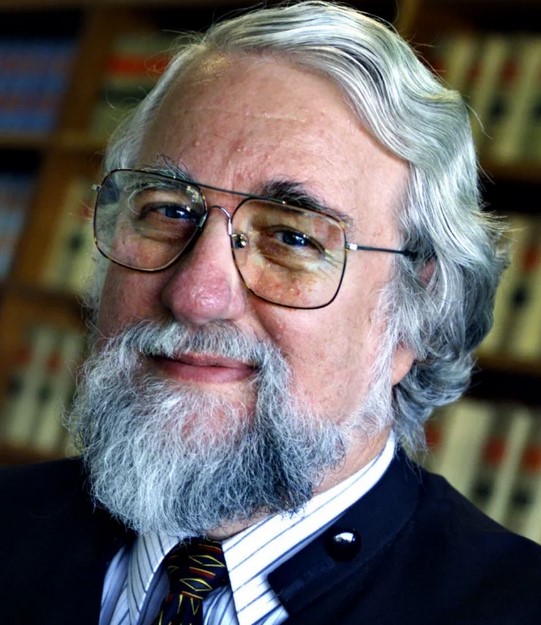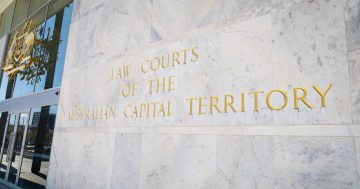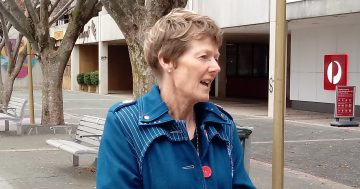
ACT Integrity Commissioner Michael Adams: “I have investigations now that I need telecommunications interception powers for.” Photo: IPCC.
The ACT Integrity Commission’s burgeoning investigation into the multi-million dollar CIT contracts involving “skills and complexity thinker” Patrick Hollingworth is set to include public hearings as the number of witnesses expands.
Integrity Commissioner Michael Adams provided an insight into the direction of the CIT probe while outlining to Estimates the meagre resources the anti-corruption watchdog had at its disposal as the scale of the investigation becomes clearer.
Mr Adams also restated the need for the Commission to have telephone intercept powers to do its job properly.
Asked by Opposition Leader Elizabeth Lee whether public hearings would be held, he said: “It is looking increasingly likely.”
Mr Adams said he had initially thought the Commission could knock over the CIT investigation in four to six weeks, but this had been “absurdly optimistic”.
Instead of looking just at the final contract, there were now six worth more than $8 million, with each one “having issues”.
Mr Adams said there had already been six private examinations, and all those witnesses would have to be recalled, and a further 15 would need to be called.
The Commission’s “fishing expedition” had yielded well in excess of a million documents.
“Even once you have reduced your haystacks to look for needles, it requires work,” Mr Adams said.
“At present, I have available two investigators and one and a half solicitors.”
He now could not say when the investigation would be complete.
The other major investigation – the Campbell School upgrade procurement – was not as extensive but would still involve 15 to 20 witnesses and the examination of four separate bid evaluations.

Opposition Leader Elizabeth Lee is concerned that the Commission is so under-resourced. Photo: Lottie Twyford.
There were eight other investigations, with two moving along “somewhat desultory”.
“The problem with resources is that eventually you get it done, but you don’t want to get it done in two years,” Mr Adams said.
Not helping the situation is the lack of telephone intercept powers, which the Commission has requested many times, but Mr Adams said the Assembly’s Justice and Community Safety committee had decided to fold the request into a statutory review next year.
“The difficulty is I have investigations now that I need telecommunications interception powers for to conduct properly,” he said.
“I need these tools as soon as I can … It’s a source of evidence I can’t get my hands on.”
Frustratingly, the Australian Federal Police had told Mr Adams that they had material that might be of interest, but the Commission was not allowed to access it.
Mr Adams said he had now written to Chief Minister Andrew Barr asking for a meeting to discuss the matter.
He said the Commission had been unable to recruit staff to fill positions and was now trying to second three investigators from the Australian Federal Police, contracting another lawyer and briefing two counsel.
If necessary, Mr Adams said he would go back to the government for additional funding, but the next budget needed to provide more resources to increase the Commission’s full-time staff.
“I am envisaging a larger permanent staff, but also funds I can use for short-term arrangements,” he said.
Opposition Leader Elizabeth Lee said it was concerning that the Commission was so under-resourced.
“The Commissioner has made it clear the [CIT] investigation is complex with plenty to look into, and it is concerning that he also stated the Integrity Commission is not being given the full resources and powers it needs to properly investigate these issues,” she said.
“The Commissioner has long called for telephone interception powers, and it is incumbent on the Labor-Greens government to adequately ensure the Commissioner is given what he needs to ensure thorough investigations.”


















